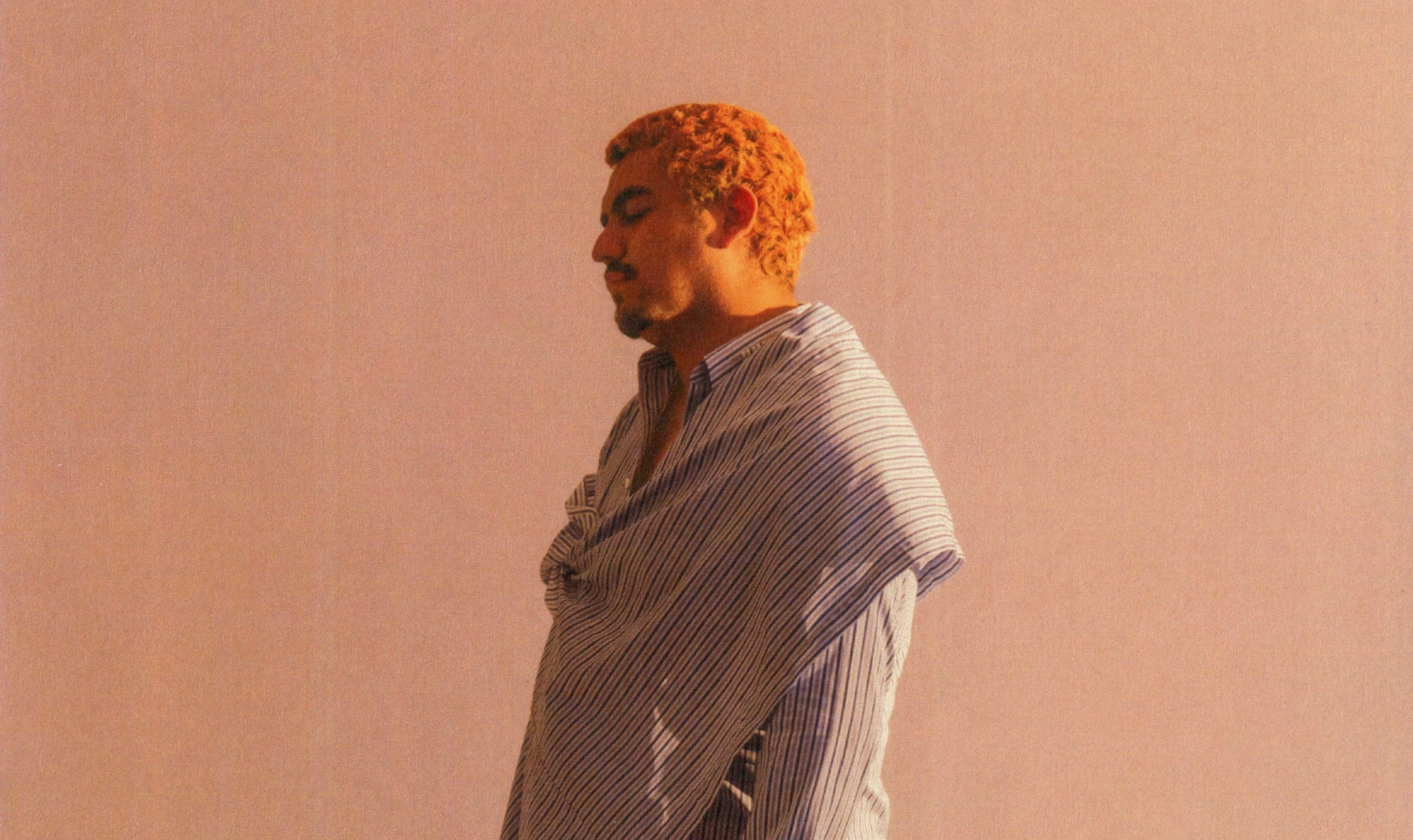Scarypoolparty’s Expansive Ambitions

Cloaked under the moniker Scarypoolparty, the work of Alejandro Aranda has been increasingly fascinating to listeners ever since the then-unknown, self-taught street musician excited judges and audiences alike week after week on season 17 of American Idol. On the show, Aranda performed his own compositions rather than covers–just the first indication of his fiercely independent ambition–and noted eclectic influences from Trent Reznor to Chopin. “They’re polar opposites, but they both searched for perfection in melody, going for it in a pure way” Aranda says. “I’m really enamored by that.”
Ultimately Aranda finished as runner-up and, in the wake of his massive Idol success, has issued four releases, including his debut LP, Exit Form, and two COVID-lockdown EPs: Doom Hologram and Los Angeles. In August, the Southern California native dropped an impressive, 21-song double album, The Act of Forgiveness, including an 11-minute improvised title track. Next up for Scarypoolparty: supporting X Ambassadors on The Beautiful Liar fall tour.
This is a very ambitious album. How much of it did you have before going into the studio?
A few of the songs–“Beautiful,” “Blesser,” “Falling Down”–were kind of like old demos that I had tucked away. I went into the studio with the mindset of wanting to make a new record. We set-up shop to do an acoustic album. We were recording at The Village Studios, and in our studio there was a piano that was Oscar Peterson’s. I’m a huge jazz head, and he is one of my favorite piano players of all time. I thought, I can’t just make an acoustic album. Over a few days there we developed these new songs. I wasn’t trying to write a record. I was just experiencing being in the studio and recording music. A lot of those ideas were generated from getting great sounds on that piano. It was such an amazing experience.
For something that started rather simply, it got very expansive. Was it being the studio that triggered that? Was it wanting to do something different from the previous EPs? How does this happen?
Everything needed to be fresh. Doom Hologram and the Los Angeles EPs were very much from the time when we were in lockdown. The Act of Forgiveness is from the mindset that I have this opportunity to go in the studio and record; I need a fresh take on everything. We definitely turned on the faucet, you know? There’s a lot of songs, too, that we didn’t put on the album. It was such a healthy work environment. We just wanted to keep making music. Finishing songs wasn’t the hard part. Picking songs was the hard part.
But you always had the idea of making an album? Or were you thinking EP?
The intention going in was to do acoustic songs and see if those songs could be for either an EP or an album. Once we were in, we started creating different styles. The album came out of nowhere.
Now that you’ve made a double album in the age of streaming, how do you prefer people listen to it: cherry-pick or in sequence?
I’m totally okay with cherry-picking. On the album, there is a taste for everybody. The way I wrote it was I was creating in the moment. How I would listen to it is like a vinyl double album: side one, let it run; side two, let it run. I would love for people to listen to it all the way through like that. Like a record on a turntable.
You wrote the album, you recorded it, you produced it. Of those three, which experience did you find to be most rewarding?
The most rewarding part was the production side of things: mic choices; mic placement; hearing the end product played back. That was so rewarding. Then, working with (mixing engineer) Manny (Marroquin). The guy is a legend.
For the orchestral arrangements, did you give ideas to Rob Mathes or just let him do his thing?
For those that don’t know, Rob is an amazing string arranger. I did have a whole cluster of ideas. That’s how I work. I think of things that we could do for each song. I sent Rob the whole album. Rob would call me every day. I had these ideas, but then I would ask him what he would do. I always liked his ideas. It was 100% him; 100% his creativity. We recorded the parts at Capitol Records, and we were loving every minute of it. He killed it.
There’s a lot of improvising that went into writing and tracking, including on the 11-minute title piece. What’s your approach to improvisation?
I just let it go. I have an appreciation for jazz. To me, a jazz musician is never playing just to play. He is playing for his life. I remember playing in bars, or out in the street; all of that is encompassed into a moment and then the mind goes free. I’d rather the music speak for itself. Music is its own source of energy. Whatever I can give to it to make it shine, I give it.
The music industry can take its toll on certain artists. Has it been a challenge to maintain the spirit and enthusiasm of your early days as a performer?
I put blinders on my eyes; keep looking straight ahead. I remind myself every day to do what makes me happy. I’ve done so many jobs. I would play music and that was the only thing that makes me feel happy. So I don’t want to let that go. So when I went through that machine, I kept it one-hundred. If I have to let go of something for the sake of not playing the music I love, I’m not going to do it. Music is the thing I love. I’ve kept that as the main focus of everything.



















